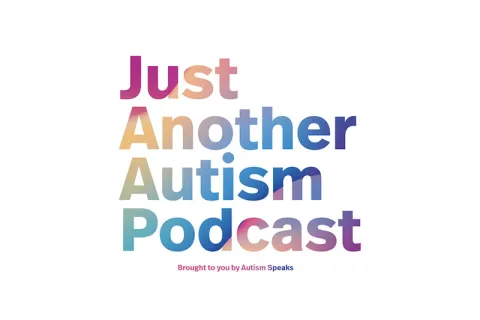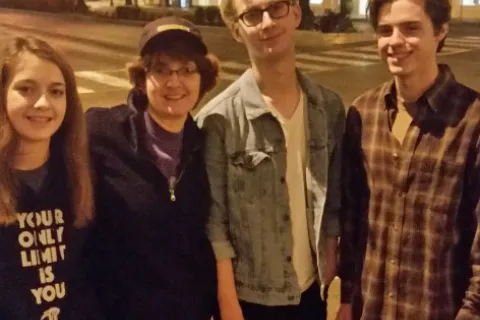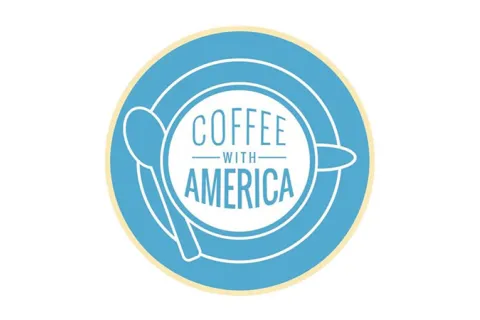With Medicaid funding at risk, Laura’s message is clear – “It’s time to mobilize”
March 31, 2025Laura Lear is the CEO of Community Support Services, Inc. (CSS), and has spent the past seventeen years working alongside dedicated professionals to enhance the lives of children and adults with developmental disabilities in Montgomery County, Maryland. CSS was founded in 1994 with a mission to build provider capacity across Maryland and deliver innovative community-based models of service. Over the years, she has witnessed tremendous progress in the field, with increased capacity, enhanced service models promoting community inclusion and individual choice. CSS has been able to develop a wide range of supports and services designed to provide the resources desired by each person to pursue his/her self-directed goals.
However, today, CSS faces a challenge -- the uncertainty of continued funding threatens to turn back the clock on decades of progress. Laura, her colleagues and the individuals with autism and other developmental disabilities served by CSS are speaking up, telling policymakers that “We Will Not Go Back.”
Read Laura’s blog below to learn about the importance of developmental disability (DD) services and the potentially devastating consequences of budget cuts. Through her perspective,
- Learn who CSS serves and why it matters;
- Discover Maryland’s progress and the threat of budget cuts to these services;
- Meet the people with autism and other developmental disabilities whose lives have been changed by these services;
- Appreciate the role of direct support professionals through one DSP’s journey; and
- Be inspired to mobilize.
Who we serve and why it matters
CSS provides essential services to over 200 individuals through adult day programs, community living, personal support, and behavioral support services, all funded by the Developmental Disabilities Administration (DDA) of Maryland. Additionally, we offer special education services for students ages 11-21, wrap-around services for children, and summer and holiday day camps. Our reach is broad, and our impact is deep—each individual we support has unique needs that require personalized care.
Our direct support professionals (DSPs) are the backbone of these services, ensuring that every person we support has the opportunity to thrive in their community. DSPs begin their careers with a passion to help others, and we provide the tools for them to grow. Many of our DSPs have worked with families for years, building trust and fostering relationships that make meaningful inclusion possible. Stability in our workforce is critical, and the ability to offer competitive wages has been vital in reducing turnover and maintaining high-quality care. As CSS has expanded, we’ve been able to offer more opportunities for DSPs to advance while continuing to be a resource for others.
Maryland’s progress and the looming setback
Historically, Maryland has been a leader in supporting individuals with developmental disabilities. The state has prioritized community-based services, expanded the developmental disabilities waiver program, and worked alongside advocacy groups such as the Maryland Association of Community Services, the Maryland Developmental Disabilities Coalition, Autism Speaks and others to improve the services available to Maryland residents. . Despite the ongoing challenges of long waitlists and funding shortages, we have been on an upward trajectory of improvement.
However, the availability of developmental disability community services relies on continued federal and state support. In Maryland, federal Medicaid matches ~50% of the state’s funding for DDA services. In other words, half of the state’s capacity to fund DDA services relies on federal funds. With the threat of Medicaid cuts at the federal level looming, we are at risk of losing critical services at a time when demand is higher than ever.
This funding is needed to end waitlists for lifespan services like community and supported living, personal supports, respite, meaningful day services, employment supports, assistive technology, and more, as well as to ensure health and service providers are accessible to people with autism and other developmental disabilities. Moreover, the Maryland DDA funding system has enabled increases in DSP wages so organizations like CSS can hire and retain qualified employees and decrease turnover. This has been essential for CSS as the minimum wage has increased in our state and continues to increase in our county. We must continue to attract new DSPs to the field, yet, these funding fears threaten our wage structure. Without continued funding, the quality and availability of vital services will suffer.
The real impact—stories from our community
Proposed cuts are not just numbers on a spreadsheet; they are threats to real lives. Let me introduce you to just a few of the individuals with developmental disabilities, who rely on the services CSS provides:
Joe was only eight when he became a ward of the state and was placed at Great Oaks Center, a state-run institution. Joe has a profound intellectual disability, is non-verbal, and has physical and medical challenges. For 23 years, Joe stayed at Great Oaks, where he had a history of physical attacks and property destruction which further limited his opportunities. In 1994, at age 31, Joe’s life changed dramatically when he moved to a townhome operated by CSS. Through the support of skilled DSPs and other professionals, Joe now benefits from a structured schedule that allows him to explore his interests while developing new skills, being actively and safely involved in his community, and even holding several jobs – his favorite being delivering food for Meals on Wheels. Joe’s life in the community gives him prospects that would never have been possible in an institutional setting.
John was a teenager when he was sent to an out-of-state residential school in Florida and then as an adult placed in an out-of-state institution by the DDA. Born with an intellectual disability and complex medical and behavioral needs, John spent years away from his home community until he finally came home at the age of 32. Since then, John has built a full and meaningful life with the support of CSS. Over the past 28 years, he has worked in a variety of jobs - collecting recycling, delivering newspapers, stocking vending machines, and helping in a nursing home kitchen. John has given back to his community by volunteering at a parrot rescue, the YMCA, and at Lawton Community Recreation Center. He enjoys cooking, swimming, grocery shopping, dance classes, hosting birthday parties and celebrations, and vacations with his friends. John’s story is a testament to what’s possible when people are given the chance to be part of their communities - to work, contribute, and live life on their own terms.
Julie was 21 and aging out of residential education services. Options were limited, and her family was frantic as they were searching for options. They didn’t want an institutional setting or to send her out of state but knew that they didn’t have the resources for her to succeed as an adult at home. Julie and her housemate, Shannon, became the first people to receive residential support from CSS. Over the last 30 years, Julie has been able to flourish. She has friends, attends parties, is part of bowling and basketball leagues, and has two part-time jobs working in restaurants, an occupation that she loves. Julie’s life is everything her family knew she could accomplish, but once feared she could never have.
James has autism, profound intellectual disabilities, and multiple medical needs. Even though he lived in Maryland, he was sent to a non-public special education program in DC. During his last year of school, James was hospitalized in a neurobehavioral unit where he stayed until aging out of education services. When he returned home without support services, his mother was left to care for him alone and struggled to meet his needs.
In 2001, James began receiving state funded community-based day services from CSS. He initially had no vocational or pre-vocational skills, limited experience in the community, and often required intensive 2:1 support. Now, he receives personal support services to assist with gaining daily living skills and social/leisure skills in his home while also getting to enjoy fitness classes, playing bingo, shopping and using his iPad to communicate and play games. While the intensity of his needs is still more than his single mother can provide alone, she is able to rely on his supports so he can safely continue living at home.
Iris lived in an institution almost her entire life until 1995 when she was approved for community-based services through DDA. This made it possible for Iris to move into her own home with a housemate, where she finally had the support she needed to live with dignity. Iris has an intellectual disability, is non-verbal, and has a history of maladaptive behaviors. She needs assistance accessing community activities and completing daily living skills related to health, safety, and self-care. Because she is able to depend on her DSPs for safety, stability, and opportunities, Iris is able to do things she enjoys in her home and in her community. Over the last 29 years, Iris has held jobs in restaurants and volunteered with various non-profit organizations. She has been learning to cook; enjoys dancing with her friends; and with support, is able to travel to Ocean City where she loves the feel of water on her feet.
Filippo just turned 20. He has been in a non-public school in his home community since the age of 13. He has an intellectual disability and complex behavioral needs. Filippo has had the opportunity to experience a much different school environment than Joe, John, Julie, James, and Iris. His experience in the non-public educational setting has given him the opportunity to learn valuable vocational skills through a number of internships with employers. He also participates in transportation training and can ride the metro bus and metro rail. With support, he can follow a visual shopping list and go grocery shopping, make purchases with a debit card, and participate in community-based activities. He attends an after-school camp funded through the Autism Waiver where he engages in social and recreational opportunities. Filippo enjoys music, word and board games, singing, and time spent outdoors on nature walks and hikes.
Filippo’s life has been shaped by inclusion and support – a future built on the lessons of the past. GOING BACK would undo all that we have gained for the DD community.
The role of DSPs and the responsibility we share
At CSS, we employ over 500 DSPs who provide the hands-on support that makes independent living possible. Their work is essential, and we have a responsibility to ensure they are compensated fairly and supported in their careers. A new DSP at CSS joins a team designed to provide the range of supports desired by the person. DDA funding allows us to provide necessary training to new employees, giving them the tools and information necessary to develop a strong relationship with each person they support.
We have found that the stability of the DSP workforce is critical to every person receiving services. Recent increases in DDA rates allowed us to raise wages, which has significantly reduced turnover and strengthened our workforce. Rolling back funding would make it harder to retain skilled professionals, directly impacting the quality of care we can provide.
Meet Sam - a DSP
Let me tell you about Sam. In 1990, Sam left Sierra Leone and moved to the United States in search of better opportunities. He took on a variety of entry-level jobs, doing whatever he could to build a new life in Maryland. One day, a friend encouraged him to apply for a job with better pay at Great Oaks Center, the state institution for people with disabilities.
Sam says he came for the pay but stayed because he fell in love with the people they were working with. He found something more meaningful. At Great Oaks, Sam met Joe and the other residents of the institution. Despite the limits of the rigid structure and isolation inherent in institutional care, Sam was able to form real connections with the people he supported.
In 1994, Sam left the institution behind and became part of CSS, earning $6.75 per hour, 50% more than minimum wage at the time, as a direct support professional. He worked closely with people he’d supported at the institution and experienced firsthand what it meant for them to finally have choices. Today, thirty years later, Sam is still with CSS. He has dedicated his career to supporting people like Joe, growing from an institutional caregiver to a CSS Direct Support Professional, then a Residential Supervisor, and now a Day and Employment Coordinator.
Sam has been part of the transformation as Maryland moved from institutions to provider-based community living, and he knows firsthand the improvements it has made in individual lives and in the system itself.
Sam is just one of the hundreds of DSPs at CSS and thousands in the state of Maryland, who have dedicated their lives to supporting those with autism and developmental disabilities. Budget cuts affecting DD services would affect their careers and the entire community they serve.
What we need to do
We must mobilize. Now is the time to raise our voices and demand that our government officials uphold their commitment to individuals with developmental disabilities. These cuts would not just reduce services—they could dismantle lives. We cannot allow that to happen.
Join us in advocating for stable funding of developmental disabilities services in Maryland and continued investments in federal programs like Medicaid. Contact your legislators, share these stories, and stand with us in saying “We Will Not Go Back."












